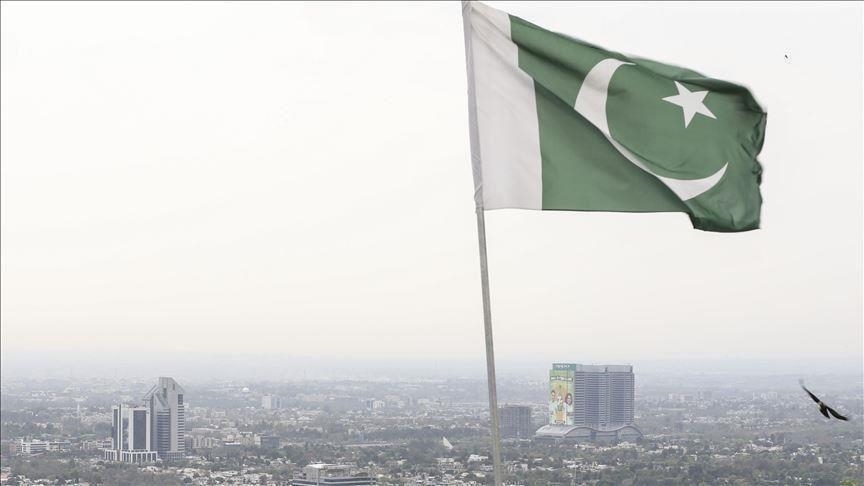
Pakistan will hold elections for the 25th Prime Minister
Pakistan will hold elections for the 25th Prime Minister
Pakistan goes to the polls on February 8 to elect its 25th Prime Minister.
After the last general election, held on July 25, 2018, the South Asian country became the 16th largest country in the United States. He will make his choice at the polling stations to elect members of the National Assembly.
Former Prime Minister Nawaz Sharif, leader of the Pakistan Muslim League-Nawaz (PML-N), and leader of the Pakistan Peoples Party (PPP) Bilawal Bhutto Zardari, son of former Prime Minister Benazir Bhutto, stand out as the two strongest candidates in the elections for the post of Prime Minister. The Pakistan Movement for Justice (PTI), the party of jailed former Prime Minister Imran Khan, is also among the prominent parties.
According to the Election Commission, 128,585,760 voters are registered in Pakistan with a population of 241.49 million people. Of these, 69.2 million are men and 59.3 million are women.
If the number of women voters in the July 2018 elections was 46,756,350, then in the upcoming elections this number increased by about 27 percent to 59,322,056. Compared to the 2018 elections, the number of male voters increased by 17 percent.
In Pakistan, where the number of voters aged 18 to 35 is 56.86 million, this corresponds to 44.2% of the total number of voters.
The number of voters aged 36 to 45 in the country amounted to 28.7 million people.
150 political parties and 17,816 candidates will take part in the elections
150 political parties will participate in the general and state elections to be held on February 8.
11,785 out of 17,816 parliamentary candidates will compete in the elections as independent candidates and 6,031 as political parties.
On the other hand, 90,675 polling stations have been set up across the country.
The number of seats in the National Assembly is 336
Until 2023, there were 342 seats in the National Assembly of Pakistan. The Election Commission has reduced the number of seats in the National Assembly of Pakistan from 342 to 336 in 2023, according to new population figures.
Of the 336 seats in the National Assembly, 60 are reserved for women and 10 for religious minorities. This means that lawmakers will fight for only 266 seats.
Each political party contesting seats in the National Assembly submits lists of 70 people to the election commission, including 60 women and 10 representatives of religious minorities. These 70 seats are distributed according to the proportional system among the parties that received more than 5% of the vote. Deputies do not apply for the 70 mandates in question.
5,121 candidates for deputies are contesting 266 seats in the National Assembly. This means that an average of 19 candidates are competing for each seat in Parliament.
After the National Assembly is formed, deputies will vote in Parliament to determine who will become Prime Minister. The candidate who received an absolute majority in parliament of 169 votes will become the 25th Prime Minister of the country.
12,695 candidates will compete for seats in state legislatures
In 4 states of the country, 12,695 parliamentary candidates will compete for 593 seats in state legislatures.
57 percent of all voters live in the state of Punjab. Punjab is followed by Sindh with 21 percent, Khyber Pakhtunkhwa with 17 percent, Balochistan with 4 percent and Islamabad Federal Capital Territory with 1 percent.
Punjab is the state with the largest number of voters
Punjab is the most populous province of Pakistan with a population of 127 million 668 thousand people. The number of voters in the state is 73,207,896.
The Punjab Assembly, which has the largest number of voters, has 371 seats. Of these, 66 are reserved for women and 8 for religious minorities.
Punjab is represented in the National Assembly with 173 seats. In this regard, Punjab is one of the states where competition between political parties is most acute.
Sindh
There are 26.9 million voters in Sindh province with a population of 55 million 696 thousand voters.
Of the 168 seats in the Sindh Provincial Assembly, 29 are reserved for women and 9 for religious minorities.
Sindh Province is represented in the National Assembly with 75 seats.
Khyber Pakhtunkhwa
Khyber Pakhtunkhwa Province, with a population of 40.85 million, has 21.9 million voters.
Of the 145 seats in the Legislative Assembly of Khyber Pakhtunkhwa province, 26 are held by women and 4 by religious minorities.
Khyber Pakhtunkhwa Province sends 55 deputies to the National Assembly.
Balochistan
The number of voters in Balochistan, with a population of 14.89 million, is 5,371,947.
Of the 65 seats in the Assembly of Balochistan, the country's largest province, 11 are held by women and 3 by religious minorities.
Balochistan is sending 20 seats to the National Assembly.
Islamabad
There are 1,083,029 registered voters in Islamabad with a population of 2.36 million.
The Federal Capital Territory of Islamabad sends 3 deputies to the National Assembly.